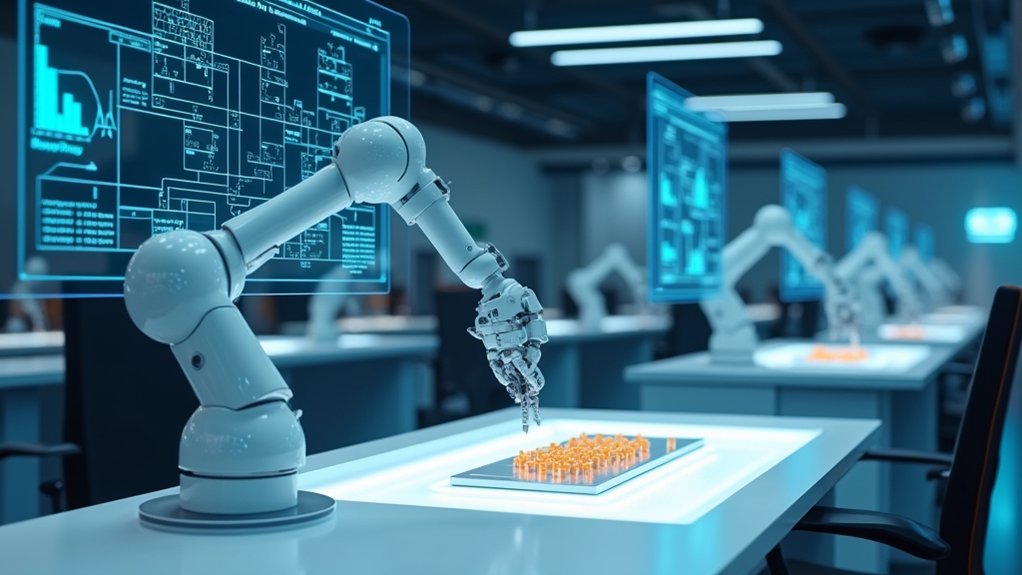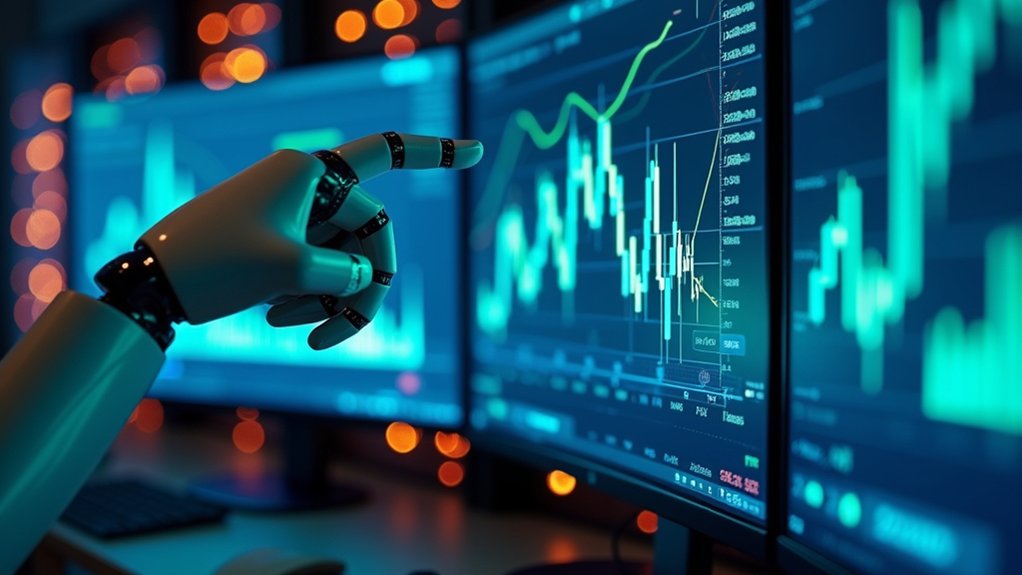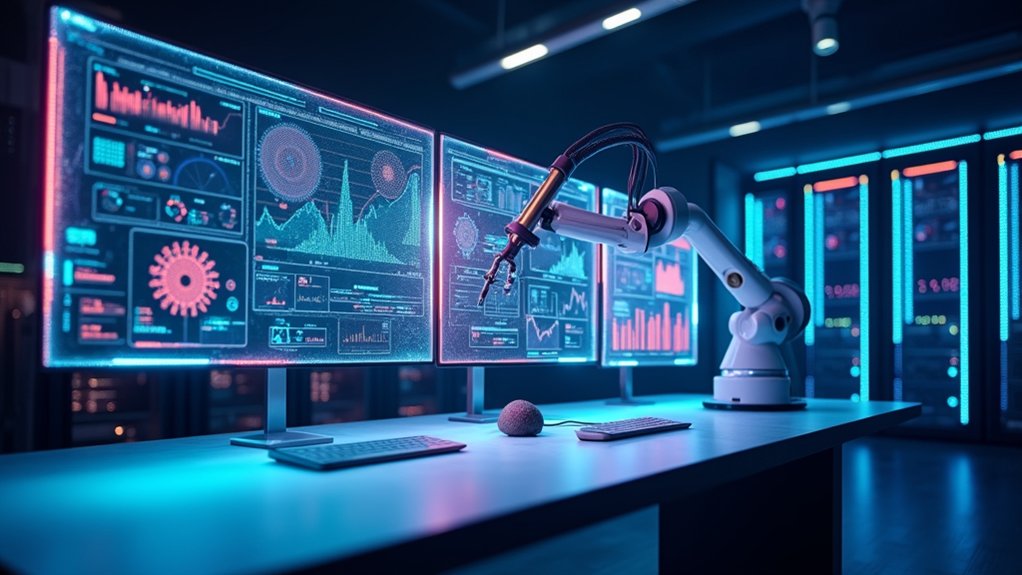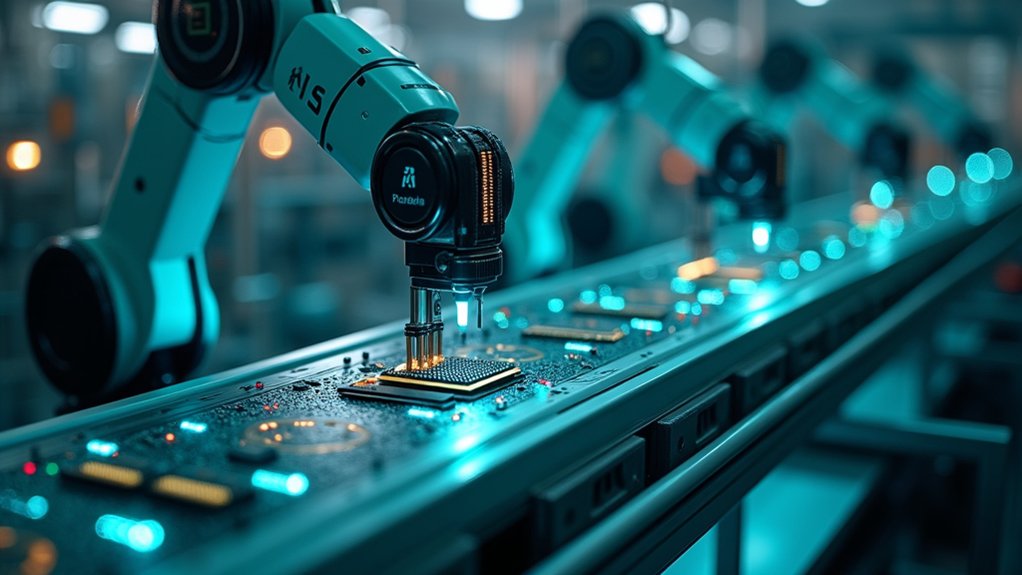Agentic AI represents a major advance in artificial intelligence technology. These systems can make decisions and take actions without constant human guidance. They pursue goals independently, adapt to new conditions, and solve problems on their own. Agentic AI follows a five-step process: perceive, reason, plan, act, and learn. Applications include personal assistants, self-driving cars, healthcare systems, and financial analysis. The technology balances autonomy with ethical considerations as it transforms various industries.

The rise of agentic AI marks a significant shift in artificial intelligence technology. These advanced systems can make decisions and take actions without constant human guidance. Unlike traditional AI that follows set instructions, agentic AI can pursue goals independently and adapt to changing conditions. They're designed to handle complex situations using techniques like reinforcement learning.
Agentic AI systems have several key features. They operate with autonomy, meaning they don't need someone watching over them all the time. They show flexibility by adjusting to new environments. Their problem-solving abilities include planning and reasoning skills. They can even show creativity by coming up with new solutions. Most importantly, they focus on achieving specific outcomes.
What makes these systems work is their combination of components. They understand natural language, make decisions based on analysis, execute tasks through external systems, learn from outcomes, and can work with other AI agents. This operational structure follows a systematic five-step process of perceive, reason, act that enables continuous improvement. This is very different from older AI programs that simply followed predetermined paths. Many of these systems are built around large language models that provide the foundation for their decision-making capabilities.
We're already seeing agentic AI in many places. Personal assistants now manage entire digital systems. Self-driving cars navigate complex traffic situations. In healthcare, these systems monitor patient data and provide valuable insights. Factories use them for dangerous tasks, and supply chains rely on them to handle disruptions. They are increasingly used in financial sectors to analyze market trends and manage investment strategies autonomously without requiring constant human advisor input.
The benefits are clear: they save time, handle unclear information, solve difficult problems, improve efficiency, and adapt quickly. However, there are challenges too. Who's responsible when autonomous systems make decisions? How do we guarantee they follow ethical guidelines? Finding the right balance between independence and human oversight remains important.
As agentic AI continues to develop, it's transforming how we interact with technology. These systems don't just respond to commands—they anticipate needs, make choices, and learn from experiences. They represent the next evolution in AI, moving from tools that assist us to partners that work alongside us.
Frequently Asked Questions
What Ethical Frameworks Guide Agentic AI Development?
Several ethical frameworks guide the development of AI that makes decisions on its own. These include principles like respect for human rights, fairness, transparency, and accountability.
Developers rely on risk management approaches that include testing, monitoring, and human oversight. Data ethics frameworks guarantee privacy and informed consent.
Governance structures like ethics boards and industry guidelines help guarantee these systems benefit humanity while minimizing potential harms.
How Do Agentic AI Systems Handle Conflicting Goals?
Agentic AI systems handle conflicting goals through several methods.
They prioritize objectives using weighted hierarchies and utility functions. When goals clash, these systems conduct trade-off analyses using multi-objective optimization.
They learn from past conflicts through reinforcement learning and feedback loops. For complex ethical dilemmas, they often incorporate human input.
The systems can adjust priorities based on context and use predefined rules to resolve conflicts efficiently.
Can Agentic AI Develop Consciousness?
Whether agentic AI can develop consciousness remains unclear. Scientists haven't reached consensus on this possibility.
Some researchers argue that complex AI systems might eventually exhibit consciousness-like properties. Others maintain that machine consciousness would differ fundamentally from human experience.
The debate involves defining consciousness itself, which proves challenging. Current AI doesn't show signs of self-awareness, though future advancements could change this assessment.
How Is Agentic AI Regulated Across Different Countries?
Regulation of agentic AI varies globally. The EU leads with its AI Act, classifying systems by risk and imposing hefty fines for violations.
The US lacks federal legislation, relying on voluntary guidelines while states create a patchwork of laws.
China focuses on sector-specific rules with strong government oversight.
Meanwhile, over 35 countries have implemented some form of AI regulation, with many, like Canada and India, developing new frameworks.
What Fail-Safes Prevent Agentic AI From Harming Humans?
Multiple fail-safes protect humans from potential AI harm. These include "kill switches" that allow emergency shutdowns, human oversight requiring people to approve critical decisions, and "AI boxing" that limits system capabilities.
Technical safeguards involve constant monitoring for unusual behavior and verification of safety properties. Most AI systems also have ethical guidelines built into their decision-making processes.
Experts recommend using several layers of these protections together for maximum safety.









